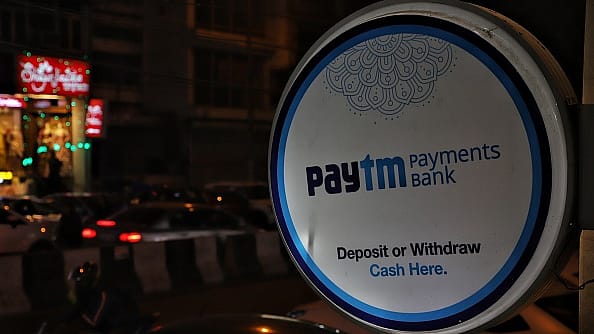Paytm Payments Bank CEO Surinder Chawla resigns
ADVERTISEMENT

Paytm Payments Bank CEO Surinder Chawla tendered his resignation on April 8, 2024, on account of personal reasons and to explore better career prospects.
Chawla will be relieved from Paytm Payments Bank with effect from close of business hours on June 26, 2024, unless changed by mutual consent, its parent One97 Communications says in a stock exchange filing.
"Nearly all agreements between the Company and PPBL have been terminated as per our disclosure on March 1, 2024, and the board of PPBL has been reconstituted with five independent directors including an Independent Chairperson, and no nominees from the Company, as per our disclosure on February 26, 2024. In line with our ongoing efforts, the Company continues to collaborate with banking partners to enhance our merchant acquiring and UPI services," the filing says.
In February, Paytm founder Vijay Shekhar Sharma resigned from Paytm Payments Bank’s board. One97 Communications reconstituted the board of its payments unit after the Reserve Bank of India (RBI) ordered Paytm Payments Bank to stop accepting fresh deposits in its accounts and wallets from March 15.
Paytm Payments Bank had appointed ex-Central Bank of India chairman Srinivasan Sridhar, retired IAS officer Debendranath Sarangi, former Executive Director of Bank of Baroda Ashok Kumar Garg, and retired IAS Rajni Sekhri Sibal to the board as independent directors.
January 2026
Netflix, which has been in India for a decade, has successfully struck a balance between high-class premium content and pricing that attracts a range of customers. Find out how the U.S. streaming giant evolved in India, plus an exclusive interview with CEO Ted Sarandos. Also read about the Best Investments for 2026, and how rising growth and easing inflation will come in handy for finance minister Nirmala Sitharaman as she prepares Budget 2026.
Paytm Payments Bank is 51% owned by Paytm CEO Sharma while the remaining 49% is owned by One 97 Communications.
RBI governor Shaktikanta Das in February said the banking regulator gave ample time to Paytm Payments Bank to comply with regulations and business restrictions were imposed only when the entity did not listen to constructive engagement.
“We give sufficient time to every RE to comply with the requirements. Sometimes it may look more than sufficient. We are a responsible regulator. If everything has been complied with, then why should we act,” Das said in the post-policy press conference of the RBI.
The RBI has over the last few years deepened its supervisory systems. “Our emphasis is always on bilateral engagement with RE. We focus on nudging the RE to take corrective action and sufficient time is given,” said Das.
"When constructive engagement does not work. We go for imposing business restrictions. Such restrictions are proportional to the gravity of the situation," Das said, emphasising that all actions are in the best interest of systemic stability and depositors' interest.
The supervisory action on Paytm Payments Bank was taken after persistent non-compliance and months and years of bilateral engagement with the company, said RBI deputy governor Swaminathan J.
